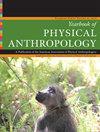The Integration of Anthropology
Q4 Social Sciences
引用次数: 13
Abstract
ing parts for which tools are at hand, the anthropologist generally prefers to worry a whole problem without success than to operate successfully with good tools on something not really there. In this he differs from not only most economists but from most sociologists and psychologists as well. It is a characteristic probably related both to the natural science and natural his? tory background of most early anthropolo? gists and to their deliberate selection of a large and complex problem which they insisted must be attacked from all sides at once. It is also related to the necessities of the field situation in which a lone anthro? pologist typically faces the wholeness of a society and culture in their ecological setting, where most obviously all things are interdependent and very real. The Integration of Anthropology?Tax 321 It is probably an incident and an accident that anthropology became particu? larly associated (notably in North America) with the social sciences (Kroeber, 1953). Economics, politics, and jurisprudence had developed concurrently with the subjects that came together to form anthropology. None of the anthropological subjects was closely related to these original social sci? ences, and it appears that, with respect to both people and ideas, anthropology?un? like sociology?was formed quite independ? ently of them. Hume, Mill, and Marx are names common to all the others but not to anthropology; Comte and Spencer are markedly absent from contemporary an? thropological journals. The connections be? tween anthropology on the one hand and the central social sciences on the other, however important they may be, are late and different in different countries. Some anthropologists of course always have been close to sociologists, as others have been close to historians or physiologists. Theo? retical studies of the evolution of the family ?by Bachhofen, McLennan, Morgan?have been a special link; another has been the French group (led by Durkheim) who identify with sociology and social anthropology alike. But although in the 1880's men like Lester Ward and J. W. Powell both were active in the Washington Anthropological Society, the two disciplines generally have been farther apart than university organiza? tion leads one to believe. There were departments of anthropology in American universities as early as depart? ments of sociology, sometimes earlier; but a sociology department where there was no anthropology department often sought an anthropologist to teach its "social origins" material; and eventually there came to be combined departments of sociology and anthropology. Similarly many universities in grouping subjects into larger divisions classified anthropology among the social sciences rather than with the biological sci? ences or the humanities where the roots of anthropology are at least as strong. This has led occasionally to an identifica? tion (even by anthropologists) that needs correction. In tradition, spirit, and method anthropology is not particularly a social science, and neither administrative convenience nor the need to classify is likely to make it one. Anthropology has a contribu? tion to make to the social sciences?and in the tradition of anthropology it also uses what knowledge and tools they develop? but its best contributions will presumably be "anthropological," stemming from its人类学的整合
对于手头有工具的部分,人类学家通常更愿意担心整个问题而没有成功,而不是用好工具成功地处理一些并不真正存在的问题。在这一点上,他不仅不同于大多数经济学家,也不同于大多数社会学家和心理学家。这一特点可能与自然科学和自然科学都有关系。大多数早期人类的托利背景?他们慎重地选择了一个大而复杂的问题,他们坚持必须从各个方面同时着手。这也与野外生存的必要性有关,在这种情况下,一个孤独的人类?辩论家通常在他们的生态环境中面对社会和文化的整体性,其中最明显的是所有事物都是相互依存的,非常真实。人类学的整合?人类学变得特别可能是一个偶然事件。主要与社会科学相关(尤其是在北美)(Kroeber, 1953)。经济学、政治学和法学是与汇集在一起形成人类学的学科同时发展起来的。没有一门人类学学科与这些原始的社会科学密切相关。是的,似乎在人和观念方面,人类学?喜欢社会学吗?是独立形成的吗?他们中的一个。休谟、密尔和马克思是所有其他人都有的名字,但不是人类学的名字;孔德和斯宾塞在当代文学中明显缺席。thropological期刊。有什么联系?一方面是人类学,另一方面是核心社会科学,无论它们多么重要,在不同的国家都是晚的和不同的。当然,有些人类学家一直与社会学家关系密切,就像有些人与历史学家或生理学家关系密切一样。西奥?巴赫霍芬、麦克伦南、摩根对家庭进化的理论研究?一直是一个特殊的链接;另一个是认同社会学和社会人类学的法国学派(以迪尔凯姆为首)。但是,尽管在19世纪80年代,像莱斯特·沃德和j·w·鲍威尔这样的人都活跃于华盛顿人类学学会,但这两个学科通常比大学组织的距离更远。行动使人相信。早在美国的大学里就有了人类学系。社会学课程,有时更早;但是一个没有人类学系的社会学系经常会找一个人类学家来教授它的“社会起源”材料;最终形成了社会学和人类学的合并系。同样,许多大学在将学科划分为更大的部门时,将人类学归入社会科学而不是生物科学。科学或人文学科,其中人类学的根基至少同样强大。这偶尔会导致身份识别?需要纠正的观点(即使是人类学家)。在传统、精神和方法上,人类学并不是一门特别的社会科学,管理上的便利和分类的需要都不可能使它成为一门社会科学。人类学也有贡献?对社会科学有何看法?在人类学的传统中它也使用了他们开发的哪些知识和工具?但它最好的贡献可能是“人类学的”,源于它的
本文章由计算机程序翻译,如有差异,请以英文原文为准。
求助全文
约1分钟内获得全文
求助全文

 求助内容:
求助内容: 应助结果提醒方式:
应助结果提醒方式:


